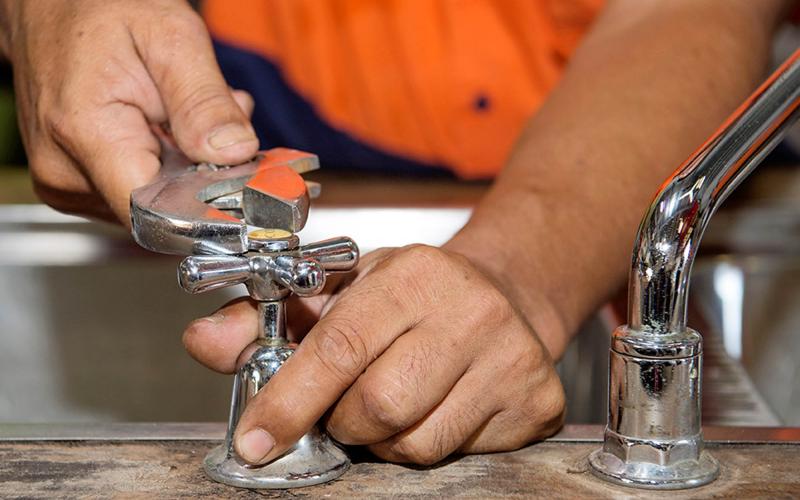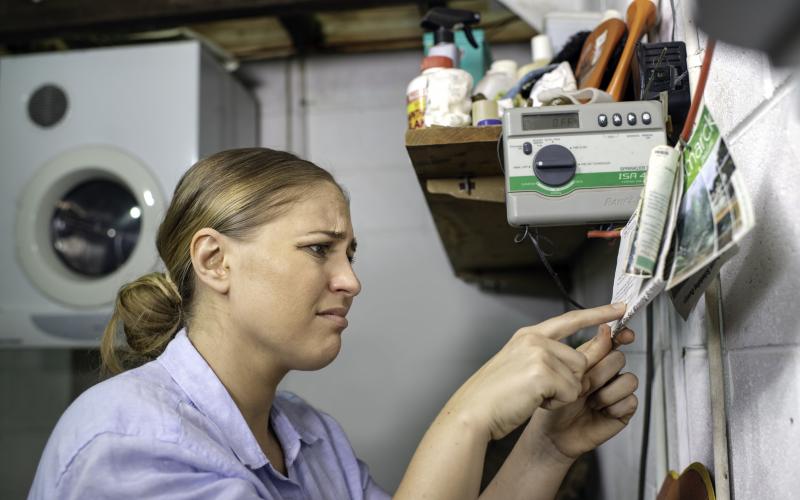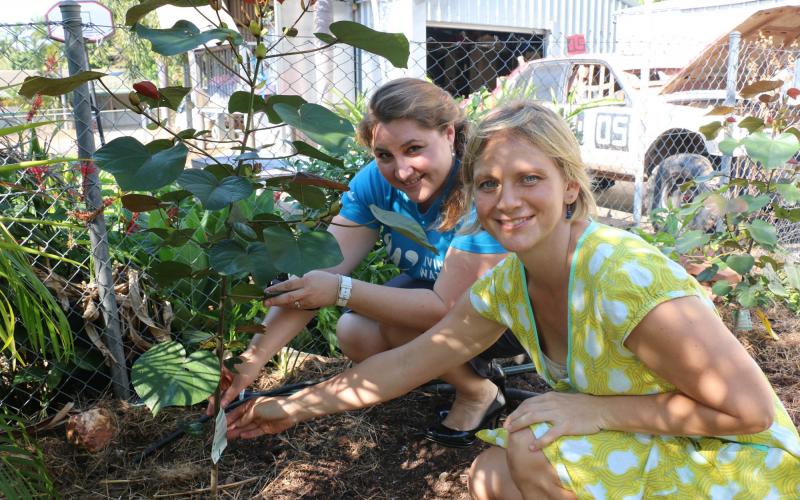Saving water on larger blocks
A great advantage of living rural is the surrounding environment. Beautiful bush blocks with nature so close to your living space. There is a lot to do though, with fences and fire breaks to maintain, weeds to keep at bay and your garden to look after. And if you have kids, there is all that running around to school, sport and social activities, often over a lot of distance! We understand that you are time poor but it’s important to add water efficiency to your list. Climate variability in the Darwin region means we are never sure how much rain we will get from year to year and having a sustainable supply of water is crucial to maintaining your great rural lifestyle.
The two biggest areas of water use in homes in the Darwin region are gardens and water waste through leaks. Below are our top tips to help you reduce your water use whilst still maintaining your lifestyle:
1. Irrigation
Irrigation schedules:
Over half of all water used in the Darwin region goes on gardens. After conducting 650 water efficiency consultations, Living Water Smart found that the majority of people overwater their garden. So it makes sense to try and curb garden water use, and you can do this without negatively impacting on your garden and lifestyle. Gardens can be just as healthy, sometimes healthier, with reduced watering.
On a large block most property owners will have an automated irrigation system. That’s great. But it’s important that you schedule your irrigation to water efficiently. Here are some general guidelines to help you:
- Water after 8pm and before 6am to avoid evaporation during the heat of the day.
- Follow the 3, 2, 1 guide to watering in the dry season:
- Water your lawns 3 times per week.
- Water exotics like palms and heliconias, twice a week or less.
- Water your natives, like acacias and grevilleas, just once a week or less.
- Water for longer but less often to encourage root growth. Plants with a healthy root system are the survivors when the going gets tough.
- Adjust your irrigation schedule according to the seasons. Follow the 3,2,1 guide above in the dry but as it comes into the late dry season keep an eye on your garden and if your plants are wilting give them an extra drink. The extra heat at that time of year can make your plants a bit thirstier. Once the wet season rains kick in turn your irrigation off and let nature do the watering!
Manage the pressure:
Larger blocks normally mean longer irrigation lines. They also mean that you will likely suffer from pressure drop as you get further away from the water source. This means the sprayers, sprinklers or drippers at the beginning of the line will be putting out way more water than those on the end. Usually this means you have to water for longer to make sure plants at the end of your lines are getting a good drink, but the ones closer will be getting over-watered!
Tips to manage the pressure include:
- Always try and loop your irrigation lines to keep pressure as even as possible along the line's entire length.
- Use drippers rather than sprayers. These emit water really slowly meaning pressure drops will be less. They also put water right in your plants root zones and minimise weed growth.
- Get pressure compensating drippers, sprayers and pop-ups – these better regulate the water flow helping ensure your coverage is even.
Get Smart with a smart irrigation controller
Consider investing in a smart irrigation controller that will automatically adjust your watering based on local weather conditions. For example, when it rains the controller can reduce or turn off your irrigation saving you water, or if you experience significantly hotter temperatures than normal your controller can increase your watering giving your plants an extra drink. Overall, it’s a great way to save water and should also make your garden even healthier as it is getting just the right amount of water. Some smart irrigation controllers also include flow meters and other smart technology that will alert you of any leaks in your irrigation system. Smart controllers generally need wifi access to respond to the weather so on a large block the controller will need to be near your modem.
2. Leaks
The next biggest use of water in the Darwin region is leaks - what a waste! If you suspect a leak, it is in your own interest to find and fix it as soon as possible. On large blocks leaks can be especially hard to find and you may not know you have a leak until it’s already cost you a bucket load of water! Here are some easy tips to keep on top of leaks:
- Walk the lines. No we’re not quoting Johnny Cash; we’re referring to your irrigation lines! Once a month turn your irrigation on and then walk along all your pipes and lines checking for leaks. Often you’ll find split joints and irrigation lines, leaky sprinkler heads or cracked pipes. You may also find sprinkler heads that are pointed in the wrong direction that can easily be re-directed.
- Keep an eye out for green patches. In the dry season the only green patches should be the ones you water! Keep a look out for any random green patches as these will indicate a leak in an underground water pipe.
- Dripping taps and shower heads. Don’t leave them! Often it’s just a matter of changing a washer or tightening a screw. You could always call a plumber, but first why not ask a handy friend or do a search on You Tube and try to fix it yourself!
- Leaking toilets. You can easily check this by putting food dye in the cistern and seeing if it ends up in the bowl. Or just place a single sheet of toilet paper on the back of the toilet bowl, if it soaks you probably have a leak.
- If you know you have a leak but can’t find it there are plumbers around with specialised leak detection gear that allows them to track down leaks, either by high-powered headphones or tracer gas. They can even pin-point leaks through a concrete slab which makes repair much easier.




